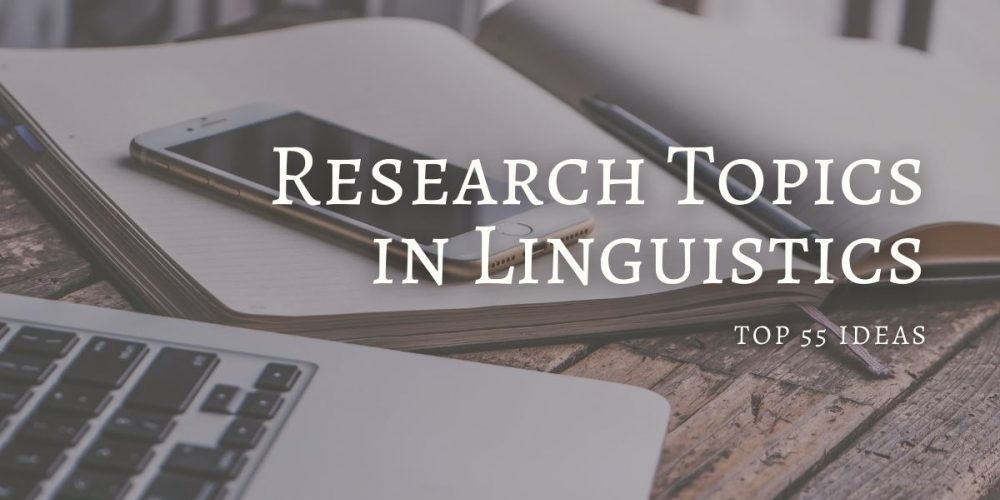Struggling to choose the perfect linguistics dissertation topic? Our expert guide offers a wide range of custom dissertation writing ideas across core areas like semantics, phonology, applied linguistics, and sociolinguistics. Whether you’re focusing on the structure of global languages or investigating their social functions, our curated list provides essential support for students seeking reliable PhD writing services and comprehensive dissertation help in linguistics.
List of Linguistics Dissertation Topics
History and Development of English Language
- The Evolution of English from Old English to Modern English: A Historical Linguistic Analysis
- The Influence of Colonialism on the Global Spread and Transformation of the English Language
- An Examination of the Role of the Printing Press in the Standardization of English
- How Latin and French Shaped the Vocabulary and Grammar of English During the Middle Ages
- The Impact of the Internet and Digital Communication on Contemporary English Development
Interaction of Culture and Languages
- Cross-Cultural Communication: How Language Reflects and Shapes Cultural Values
- A Comparative Study of Cultural Idioms Across Languages and Their Sociolinguistic Impact
- The Role of Language in Preserving Indigenous Cultural Heritage
- Multilingualism in Multicultural Societies: A Case Study of Cultural Integration Through Language
- The Effect of Globalization on Language Shift and Cultural Identity
The Greek Philosophers’ Contribution to Language
- The Linguistic Theories of Plato and Aristotle: Foundations of Western Language Philosophy
- An Analysis of the Cratylus Dialogue: Plato’s View on the Relationship Between Words and Meaning
- The Role of Greek Logic and Grammar in the Development of Linguistic Science
- How Socratic Dialogues Influenced the Discourse on Language and Thought
- A Historical Study of Stoic Philosophers’ Contributions to Linguistic Structure and Semantics
Bilingualism Spread Among Immigrants
- The Role of Family and Community in Promoting Bilingualism Among Immigrant Children
- A Sociolinguistic Study of Code-Switching Practices in Immigrant Populations
- The Impact of Educational Systems on the Maintenance of Heritage Languages in Immigrant Communities
- Challenges and Benefits of Bilingualism for Second-Generation Immigrants
- Bilingualism as a Tool for Identity Preservation Among Diaspora Groups
Examine Language Development Challenges
- Language Delays in Early Childhood: Causes, Diagnosis, and Educational Interventions
- The Impact of Neurodevelopmental Disorders on Language Acquisition
- An Analysis of Language Development in Children with Hearing Impairments
- Multilingual Environments and Their Effect on Early Language Development
- The Role of Socioeconomic Status in Language Learning and Proficiency
Generational Development of the Language
- Language Change Across Generations: A Diachronic Study of Vocabulary and Syntax
- The Influence of Technology on Intergenerational Linguistic Differences
- Examining the Decline of Traditional Dialects Among Younger Generations
- Language Innovation and Slang as Markers of Youth Identity
- How Generational Language Shifts Reflect Broader Social and Cultural Changes
Language Attitudes Among Teenagers
- Teenagers’ Perceptions of Standard vs. Non-Standard Language Varieties
- The Influence of Peer Groups on Language Preferences Among Adolescents
- Social Media and Its Role in Shaping Teenagers’ Language Attitudes
- An Analysis of Linguistic Insecurity in Teen Language Use
- Attitudes Towards Multilingualism in Multicultural Youth Communities
Linguistics Forensic Examination
- The Role of Forensic Linguistics in Criminal Investigations and Legal Proceedings
- Voice Identification and Authorship Attribution in Forensic Linguistics
- Discourse Analysis in Courtroom Testimonies: Techniques and Implications
- Forensic Linguistics in Cybercrime: Investigating Online Threats and Harassment
- Deception Detection Through Linguistic Pattern Recognition
Sociolinguistics
- The Relationship Between Language and Social Class in Urban Settings
- Gendered Communication Patterns: A Sociolinguistic Perspective
- Language Variation Across Ethnic Groups: A Comparative Analysis
- The Impact of Social Networks on Dialect Formation and Change
- A Study of Language Use and Identity in Multilingual Communities
The Connection of Language with Identity
- How Language Choice Reflects Personal and Group Identity
- The Role of Mother Tongue in Shaping Ethnic and Cultural Identity
- Language as a Political Tool for Identity Assertion in Minority Communities
- Bilingualism and Hybrid Identities in Postcolonial Societies
- The Psychological Effects of Language Loss on Cultural Identity
The Increasing Use of Slang
- Teenage Slang as a Marker of Social Belonging and Identity
- The Evolution of Internet Slang and Its Linguistic Features
- Regional and Cultural Variations in Slang Usage: A Sociolinguistic Study
- The Influence of Pop Culture on Slang Development
- How Slang Challenges and Enriches Traditional Language Norms



